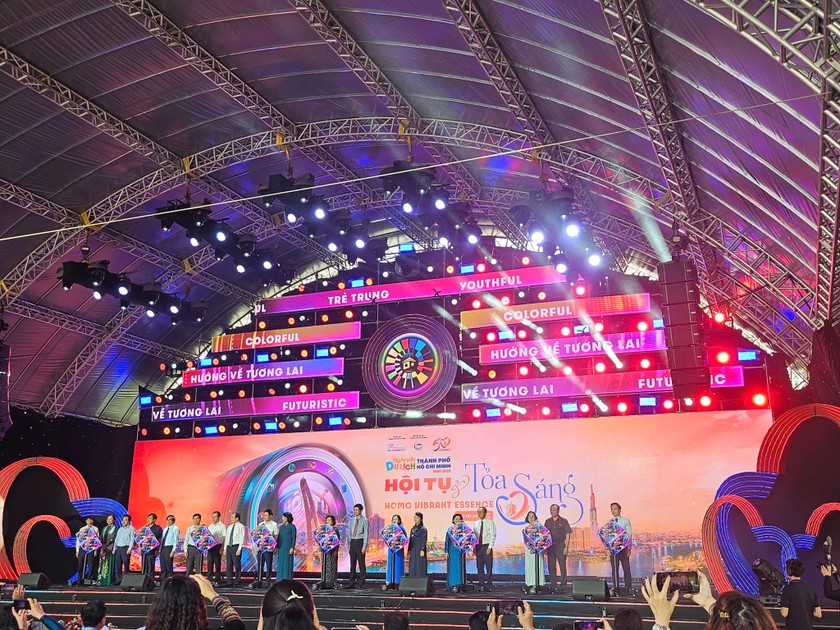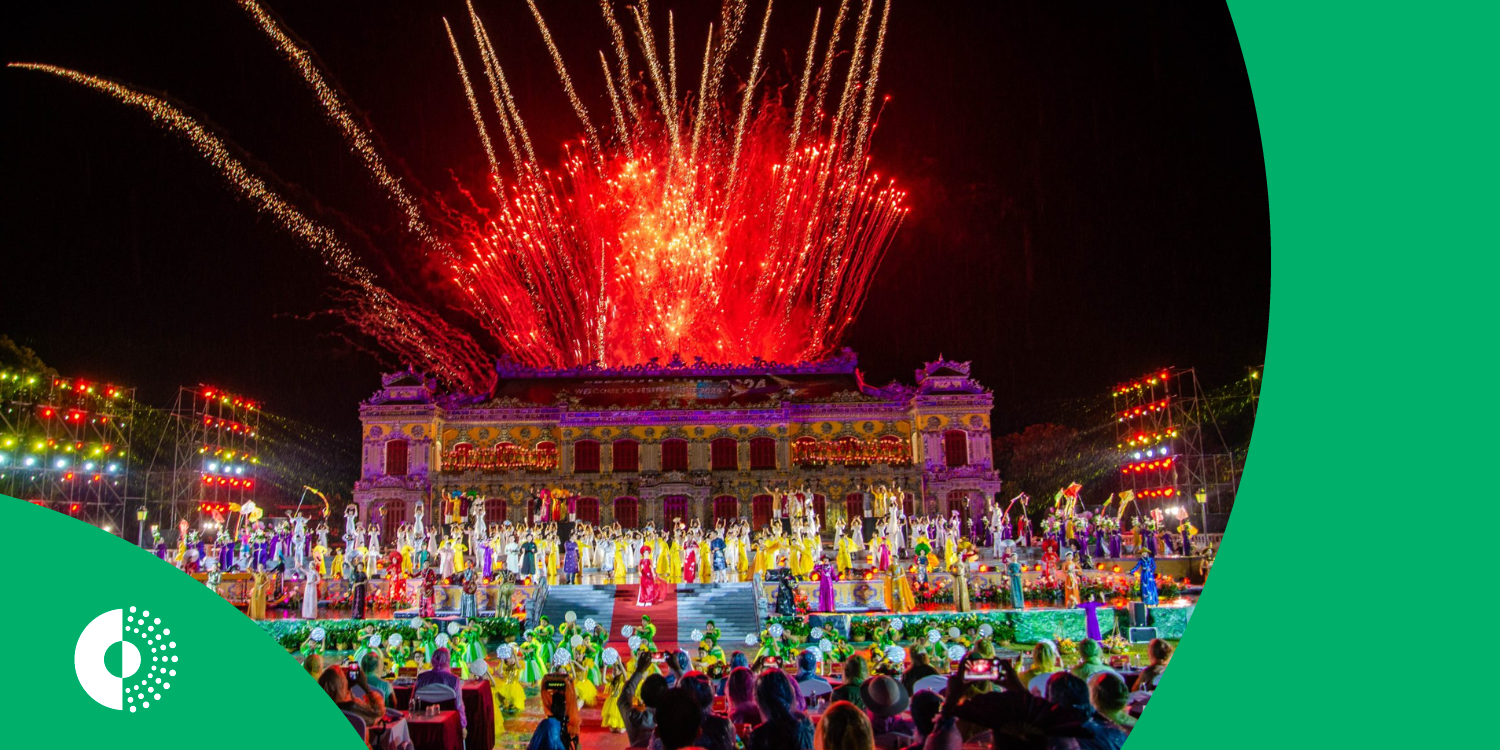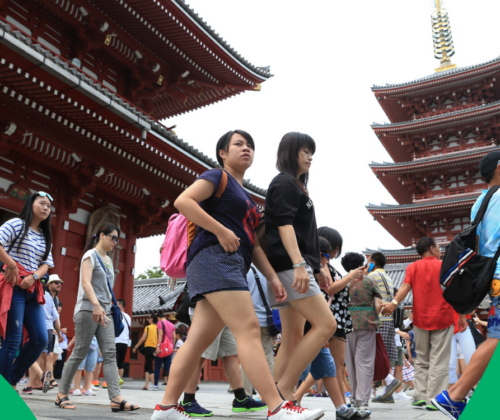Tourism events are becoming a crucial part of the strategies many destinations use to increase visitor numbers, extend the duration of stays, and diversify their tourism offerings. In Vietnam, provinces and cities are investing significantly in cultural festivals, music concerts, sports competitions, and other events to attract travelers. However, despite the growing scale and frequency of these events, many localities still lack the tools needed to assess their actual effectiveness. Measuring the socio-economic impact of tourism events is no longer just a desirable option; it is now essential.

The Growing Role of Tourism Events in Destination Development
In recent years, tourism events in Vietnam have increased in both number and variety. From heritage festivals and community fairs to international marathons and beach music shows, these events serve as powerful tools for destination branding and tourism promotion.
Tourism events offer numerous benefits. They enhance the visibility and appeal of destinations, helping them stand out in an increasingly competitive tourism market. Additionally, these events stimulate local spending by creating demand in various sectors, including accommodation, food and beverage, transportation, and retail services.
Another significant contribution of tourism events is their ability to extend the average length of stay for visitors. People often plan longer trips to fully experience both the event and the surrounding destination. Furthermore, events generate employment opportunities and provide avenues for local businesses and entrepreneurs to thrive, fostering economic growth within the community.
Despite these advantages, the lack of reliable measurement and evaluation can lead to inefficient planning, misallocated budgets, and missed opportunities.
 Why Measuring Impact Matters
Why Measuring Impact Matters
Measuring the impact of tourism events provides valuable data that aids in smarter decision-making for both destination managers and event organizers.
First, data-driven planning helps local governments and stakeholders identify which events produce the most value. With accurate insights, they can determine which events should be expanded, restructured, or perhaps discontinued, ensuring that each initiative aligns with the overall tourism strategy.
Second, measuring impact supports budget optimization. When authorities understand the actual returns from events, they can allocate public funding and attract private sponsorship more effectively, minimizing waste and enhancing the return on investment.
Third, it enables transparent reporting. Clear evidence of outcomes—such as visitor spending and community engagement—helps demonstrate value to sponsors, residents, and higher-level government bodies, fostering trust and accountability.
Finally, measurement is crucial for sustainable development. It highlights both the positive contributions and potential downsides of events, providing opportunities to improve areas like cultural preservation, environmental management, and inclusive community participation.
In summary, you can’t manage what you can’t measure.
Key Indicators for Measuring Event Impact
At Outbox, we recommend a comprehensive set of indicators to assess tourism event impact from multiple angles:
Economic Impact:
- Direct Spending: This includes what visitors spend during the event on essentials like accommodation, dining, transportation, souvenirs, and ticket purchases. These expenditures directly inject money into the local economy and provide a baseline for understanding visitor behavior and value.
- Indirect Spending: Beyond the immediate transactions, events drive indirect benefits through supply chains. Local producers, service providers, and logistics companies see increased demand due to event-related activities, thereby multiplying the economic contribution across sectors.
- Job Creation: Events often create both short-term and long-term employment opportunities. From temporary event staff to more sustained roles in hospitality and retail, the increased demand during events supports workforce development and income generation.
- Tax Revenue: With higher levels of commerce, local and national governments benefit through increased tax collections, from value-added taxes on purchases to business and income taxes paid by enterprises involved in the event.
- Return on Investment (ROI): ROI compares the total revenue generated from the event (including visitor spend and sponsorship) against the cost of organizing it. It helps authorities and organizers assess whether the event delivered proportional value relative to investment.
Social Impact:
- Visitor Satisfaction: Assessing how tourists evaluate their experience gives a clear sense of the event’s quality and its influence on destination perception. Positive reviews often translate into higher revisit intention and positive word-of-mouth.
- Resident Satisfaction: It is vital to understand how residents perceive the event. Do they feel proud of it? Do they experience disruptions or inconveniences? Gathering this feedback enables organizers to improve future editions and ensure social acceptance.
- Community Participation: A high level of local involvement—through volunteering, attendance, or partnership—signals that the event resonates with the community. It reflects public endorsement and ensures the event is rooted in local identity rather than being externally imposed.
- Cultural Integrity: Events should reinforce, not dilute, local culture. Evaluating whether the event celebrates authentic traditions or risks over-commercialization is key to long-term sustainability. The best events foster pride, preserve heritage, and create platforms for cultural expression.
Conclusion
Tourism events have significant potential, but without accurately measuring their true impact, much of that potential may remain unrealized. By adopting a structured impact assessment framework, local authorities and event organizers can access valuable data, improve the effectiveness of their events, and strengthen local tourism economies.
Outbox provides professional solutions designed to help destinations throughout Vietnam assess and enhance the socio-economic value of their tourism events. Let data guide you towards smarter and more sustainable event strategies.




